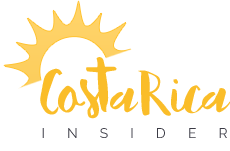Homepage › Forums › Costa Rica Insider Forum › Are expats on pensions required to pay into CAJA?
- This topic has 5 replies, 3 voices, and was last updated 10 years, 11 months ago by
JASON HOLLAND.
-
AuthorPosts
-
June 7, 2014 at 7:00 pm #565406
JOEL JOHNSON
ParticipantI am a bit confused. I just read in the IL Community Forum the following as posted by Rafael Valverde, Atty:
“People who are self employed or are not covered under CAJA because they are not employees (for instance, an expat with a retirement visa category) are also obligated to pay into CAJA. The amount of the CAJA payments under these scenarios are calculated also on income. So, for a self employed person, the amount of money that will need to pay every month into CAJA will depend on his monthly income.”
If this is a standard, fixed expense, why have I never seen it on any of the “Cost of living in Costa Rica” lists? Seems like a simple computation based on a fixed income. Or that could be a really naive statement there… is anything ever simple?
So, if this is the law, how have I missed it until now? Thanks. Joel Johnson
June 9, 2014 at 10:15 pm #565705JASON HOLLAND
ParticipantHi Joel,
Anyone who becomes a resident of Costa Rica, say through the pensionado program, is required to join Caja. Caja is the universal, government-run healthcare system. After you pay your fee you are given free medical care, including doctor’s visits, prescriptions, diagnostic testing, surgery… everything. Being a government-run system catering to the whole population, there can be wait times and inefficiency. But in general the Caja system gets pretty high marks for its level of care.
The fee does depend on income and is 7% – 11% of your monthly, depending on several factors. Most expat couples pay about $50 to $75 per month each to be part of Caja.
June 12, 2014 at 11:58 am #567791JOEL JOHNSON
ParticipantAha. Thanks Jason. Somehow that 7-11% tidbit of information got lost somewhere. As for using the system, well, as a US federal employee I have pretty good coverage I carry into retirement – a very big benefit. However, if I ever drop that insurance in retirement I can never get back in again. That makes such decisions more complex when it comes to any overseas moves, anywhere, as it is just a major added expense for something I may never use. Odd, but I have yet to find any federal retiree expats with whom I can discuss it. Know any? 🙂
Thanks. JoelJune 13, 2014 at 9:00 pm #568262JASON HOLLAND
ParticipantHi Joel,
Unfortunately, I don’t know any former federal employees. But my suggestion would be to keep your benefits. You never know when they might come in handy. First, you’ll be covered for visits back home – you don’t want to go the hospital without insurance in the U.S. – I know that from personal experience. And there’s always the chance you’ll move back to the U.S.
August 5, 2014 at 8:32 pm #580832SUNE C CONSTANTIN DRAGOS
MemberHi Jason, you say most expats pay 50-75$ per month and that you have to pay 7-11% of your income to CAJA. So that would mean that most expats in Costa Rica have no more than circa 800$ in monthly income? That seems a little low, don’t you think?
If I have to pay say 10% of my monthly income to CAJA I would be paying approximately 4 times more in Costa Rica than I pay here in the US for health insurance. Is that really how that system works?August 6, 2014 at 7:27 am #580881JASON HOLLAND
ParticipantHi Sune,
Great question with a bit of a tricky answer. The official rule is 7-11% of your income. But when I speak with expats they tell me their payments range from $50 to sometimes $100 per month per person even when they have what would seem to be a much higher income. That’s for pensionados. Why this is the case, I’m not sure, and I haven’t been able to get a good solid answer.
I would try to contact this law firm, they help expats secure residence and sign up for Caja all the time: plawcr.com
-
AuthorPosts
- You must be logged in to reply to this topic.
